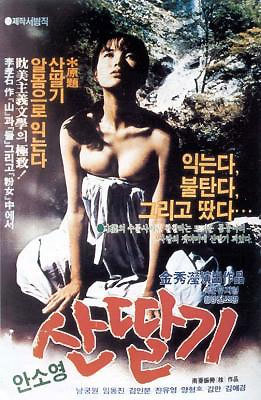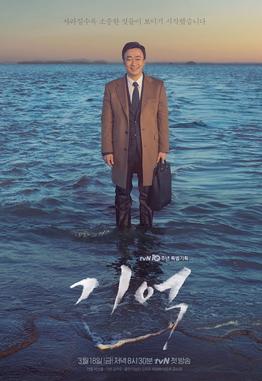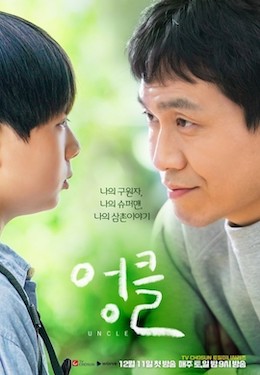Related Research Articles
Seoul Institute of the Arts is a prominent educational institution specializing in the Arts located in Ansan, Gyeonggi Province, South Korea. The school has nurtured many graduates who are actively working in art related fields within Korea as well as internationally. The Namsan campus in the heart of Seoul is used for presentation of arts productions and convergence with industry. The Ansan Campus opened in 2001 and is used for educational training, which aims to tear down barriers between disciplines, genres, and majors. The Institute continues to be a forerunner in globalization of Korean arts and creation of new forms of arts.

A Ferry Boat That Has No Owner is a 1932 Korean film starring Na Woon-gyu. Its title is also translated as "The Ownerless Ferry Boat". The film premiered at Dansungsa theater in downtown Seoul. This was director Lee Gyu-hwan's first film. This film is significant as the last pre-liberation film that was able to present an openly nationalistic message, because of increasing governmental censorship at this time.

Age of Success is a 1988 South Korean film written and directed by Jang Sun-woo.

Eoudong is a 1985 South Korean film starring Ahn Sung-ki and Lee Bo-hee. Lee Bo-hee won the best actress award at Grand Bell Awards in 1986. The film was selected as the South Korean entry for the Best Foreign Language Film at the 58th Academy Awards, but was not accepted as a nominee.

Diary of King Yeonsan is a 1988 South Korean film directed by Im Kwon-taek. It was chosen as Best Film at the Grand Bell Awards.

Sharp (Korean: 반올림) is a Korean drama that aired from November 29, 2003, to February 25, 2007, on KBS2.

Mountain Strawberries (Korean: 산딸기) also known as Wild Strawberry is a 1982 South Korean film directed by Kim Su-hyeong. It was the first entry in the Mountain Strawberries series, inspiring five sequels, the last appearing in 1994.

South Korea participated in the 2006 Asian Games in Doha, Qatar on 1–15 December 2006. South Korea ranked 2nd with 58 gold medals in this edition of the Asiad.

Sign (Korean: 싸인) is 2011 South Korean television series, starring Park Shin-yang, Kim Ah-joong, Jun Kwang-ryul, Jung Gyu-woon and Uhm Ji-won. It is about the life of forensic doctors. It aired on SBS from January 6 to March 10, 2011 on Wednesdays and Thursdays at 21:55 for 20 episodes.

Quiz of God is a South Korean television series broadcast on cable channel OCN. It was the first medical/forensic crime investigation drama to air in Korea. The series follows genius but eccentric neurosurgeon and forensic doctor Han Jin-woo and his team as they solve suspicious deaths and unravel mysteries involving rare diseases.

Two Mothers is a 2014 South Korean daily drama starring Jang Seo-Hee, Lee Chae-Young, Hwang Dong-Joo and Kim Kyung-Nam. It premiered on KBS2 on June 3, 2014, airing every Monday to Friday at 19:50 for 102 episodes.

Memory is a South Korean television series starring Lee Sung-min, Kim Ji-soo and Park Jin-hee. It replaced Signal and aired on cable network tvN on Fridays and Saturdays at 20:30 (KST) from March 18, 2016 to May 7, 2016 for 16 episodes.

Flowers of the Prison is a 2016 South Korean drama television series starring Jin Se-yeon, Go Soo, Kim Mi-sook, Jung Joon-ho, Park Joo-mi, Yoon Joo-hee, Kim Soo-yeon, Jun Kwang-ryul and Choi Tae-joon. It is MBC's special project drama to commemorate the network's 55th-founding anniversary. The drama also marks the 3rd time collaboration between director Lee Byung-hoon and writer Choi Wan-kyu, after Hur Jun and Sangdo. It replaced Marriage Contract and aired on MBC every Saturdays and Sundays at 22:00 (KST) for 51 episodes from April 30 to November 6, 2016.

Chicago Typewriter is a 2017 South Korean television series starring Yoo Ah-in, Im Soo-jung, and Go Kyung-pyo. It ran from April to June 2017, with episodes every Friday and Saturday at 20:00 (KST) on tvN.
Age of Warriors is a South Korean historical television series. It aired on KBS1 from February 8, 2003, to August 15, 2004, every Saturday and Sunday at 21:45 (KST) for 158 episodes. The series is set during the military rule over Goryeo.

Uncle is a South Korean television series starring Oh Jung-se, Jeon Hye-jin, Lee Kyung-hoon, Park Sun-young, Lee Sang-woo and Lee Si-won. Based on the British sitcom of the same name, it is about an uncle who struggles to protect his nephew amid blatant discrimination. It aired on TV Chosun from December 11, 2021 to January 30, 2022.
References
- ↑ Min, Eung-jun; Joo Jin-sook; Kwak Han-ju (2003). "3. Korean National Cinema in the 1980s: Enlightenment, Political Struggle, Social Realism, and Defeatism". Korean Film; History, Resistance, and Democratic Imagination. Westport, Connecticut and London: Praeger Publishers. p. 67. ISBN 0-275-95811-6.
- ↑ "Berlinale: 1994 Prize Winners". berlinale.de. Retrieved 2011-06-15.